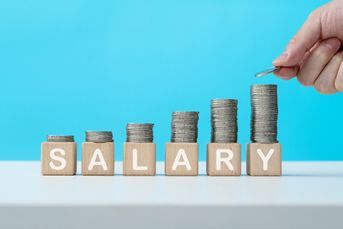Most Americans have modest savings goals, but do they meet them?

New survey also reveals disconnect between intention and action for tax refunds.
You know that old saying about acorns and oak trees? Well, it seems that most Americans are focused on the former but may be waiting a while for anything substantial to emerge.
That’s because although most people say they are saving at least something each month, a lack of financial knowledge often means they are not maximizing their dollars by ensuring they are saved in the most generous accounts.
The inaugural Growing Personal Savings Tracker from Santander Bank shows that most respondents had a monthly savings goal in the first quarter of 2024, although 25% did not. For those that did, the goals were often small – 56% said it was less than $300 per month and 26% said less than $100 – but 62% of those with a goal met or exceeded it.
Millennials and Gen Zs were most likely to have increased their savings month-over-month during the quarter (6 in 10) while half of Gen Xers and Boomers did so.
However, the study revealed that those with lower levels of financial knowledge were less likely to be saving their money in high interest savings accounts.
Just 18% of respondents said they were proficient or an expert on finances but among this group 74% had their savings in accounts paying interest of 3% or more. Conversely, 80% of those who said they were ‘novices’ when it comes to financial knowledge were getting less than 3% interest on their savings.
HIGHER SAVERS CHOOSE BETTER
The amount of money saved also has a bearing on the type of account used. Those with at least $5,000 saved in their primary account were between two (for those with up to $24,999) and four times (for those with $25K+) as likely to use accounts such as High-Yield Savings Accounts and CDs that pay higher rates. They were also between two and three times as likely to have moved money into a higher rate account in the last 12 months.
Savers in these groups are also more likely to review account statements, work with a financial professional, and save a portion of their tax return, than other respondents. However, on that last point, while most poll participants said they plan to save some of their tax refund, last year only 16% did so.
The study also found that 48% of respondents say they are comfortable discussing their budget or financial goals with their family and friends and more than half said they engage with the practice of ‘loud budgeting’ which means sharing openly to others when they cannot afford to do something.
Learn more about reprints and licensing for this article.








